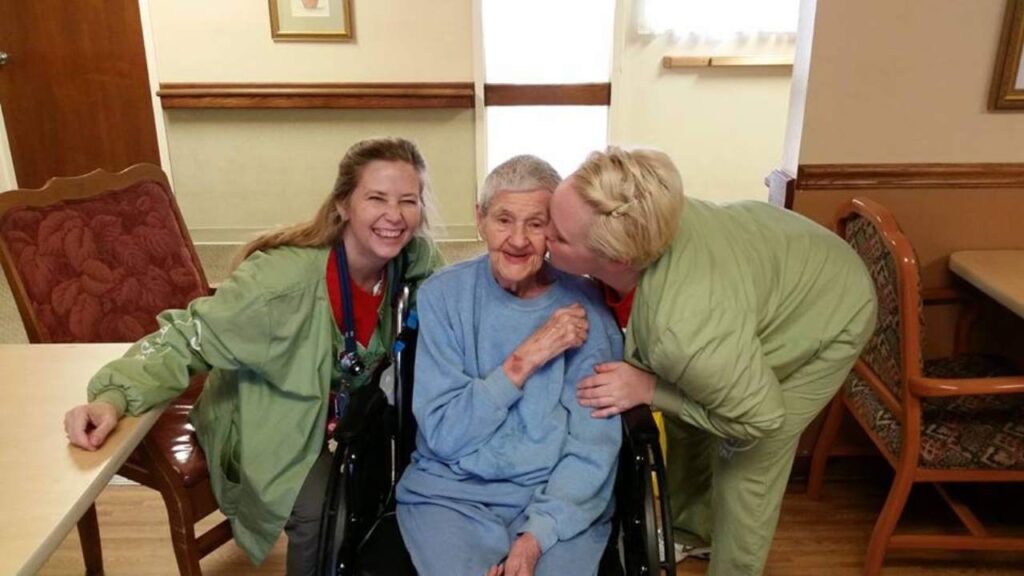What if there was a way to not only manage a serious illness but also improve the quality of life for both the patient and their family? Palliative care offers just that. It’s a branch of healthcare specifically designed to provide comfort, relieve pain, and address the emotional, social, and spiritual needs of those with serious illnesses.
By focusing on the person rather than the disease, palliative care ensures a support system for patients and their families during tough times. This blog will take you through the essentials of palliative care, highlighting its principles, benefits, and the crucial role it plays in healthcare. Explore the benefits of palliative care with us and discover how it brings relief and support to those who need it most.
So, without any further ado, let’s get into it!
How Has Palliative Care Evolved Over Time?

Palliative care has grown and changed a lot since it first started. Let’s take a closer look at how it has transformed into the important field of healthcare it is today.
The early days
In the beginning, palliative care was mostly about caring for people with terminal illnesses at home or in hospices. The idea was to make them as comfortable as possible, focusing on relieving pain and other distressing symptoms. This concept wasn’t new but began to take on a more formal shape in the 20th century.
A pioneer’s vision
Dame Cicely Saunders is often called the mother of modern palliative care. In the 1960s, she opened St. Christopher’s Hospice in London, which combined pain management with emotional and spiritual support. Her work showed the world that end-of-life care could be compassionate and comprehensive.
Broadening the scope
Over time, palliative care began to include not just those at the end of their lives but also patients with various serious illnesses, aiming to improve their quality of life. This shift meant palliative care started earlier in the course of an illness, alongside other treatments.
Global recognition
By the 21st century, palliative care gained recognition worldwide as an essential part of healthcare. Organisations like the World Health Organization now promote palliative care as a basic human right, emphasising its role in patient and family support.
Today and tomorrow
Today, palliative care is recognised for its comprehensive approach, treating the whole person rather than just the disease. With ongoing research and education, it continues to evolve, aiming to meet the diverse needs of patients around the globe.
So, as we can see, palliative care has come a long way. From its humble beginnings to becoming a key part of healthcare, its journey has been driven by compassion and the understanding that quality of life matters, no matter the stage of illness.
Next, let’s dive deeper into what makes palliative care so unique and vital.
Who is Part of the Palliative Care Team and What Roles Do They Play?

A palliative care team is like a support group made up of different healthcare professionals. Each member has a special role to play in helping the patient and their family feel better, not just physically but emotionally and spiritually too.
Doctors and nurses
Doctors and nurses in palliative care focus on reducing pain and other tough symptoms. They work closely with patients and their families to create care plans that match the patient’s needs and wishes.
Social workers
Social workers are the team members who help patients and families deal with emotional and practical challenges. They offer support, counselling, and help in connecting with community resources.
Nutritionists
Eating well is important for feeling good. Nutritionists in palliative care give advise on how to maintain a healthy diet that can help manage symptoms and improve energy.
Financial advisors
Dealing with illness can sometimes mean dealing with money worries too. Financial advisors help patients and families understand healthcare costs, insurance, and how to manage financial stress.
Spiritual advisors
Spiritual advisors or chaplains provide spiritual support. They help patients and families find peace, comfort, and meaning, no matter their beliefs or religious backgrounds.
Together, these team members make sure that the patient’s and family’s needs are met in a compassionate and comprehensive way. Palliative care teams work to ensure that patients live their best possible life, no matter their illness.
With such a diverse team, patients and families can feel supported in every aspect of their journey, making a difficult time a little easier. Now, let’s move on to understand why comprehensive care is such an essential element of palliative care.
Why is Comprehensive Care Important in Palliative Care?
Comprehensive care means looking after the whole person, not just their illness. In palliative care, this approach is key because it recognises that being well involves much more than just managing physical symptoms.
More than physical well-being
While reducing pain and discomfort is crucial, comprehensive care also addresses emotional, social, and spiritual needs. This means helping patients and their families cope with feelings of fear, sadness, and loneliness that often come with serious illnesses.
Emotional support
Providing emotional support helps patients and their families deal with the stress and anxiety of illness. By offering a listening ear and understanding, palliative care teams can help ease these burdens, making patients feel more at ease and supported.
Social connections

Illness can sometimes make people feel isolated. Comprehensive care involves helping patients stay connected with their loved ones and even find new ways to enjoy activities and hobbies that are important to them.
Spiritual care
For many people, finding spiritual peace is an important part of dealing with illness. Palliative care teams often include spiritual advisors who can help patients explore their beliefs and find comfort, whatever their faith or spiritual views might be.
A personal touch
Every person is unique, with their own life story, values, and wishes. Comprehensive care means tailoring the support to fit each individual, making sure their personal needs and preferences are met.
Comprehensive care is vital in palliative care because it helps ensure that every patient is treated as a whole person, with dignity and respect. This approach not only improves quality of life but also brings comfort and peace during challenging times. Now, let’s delve into how palliative care makes communication and decision-making easier for patients and their families.
What Are the Principles of Palliative Care?
Palliative care operates on core principles that ensure it effectively meets the comprehensive needs of patients and their families. Let’s explore these guiding principles:
Interdisciplinary team approach
A key strength of palliative care is its team-based approach. Experts from various fields work together to care for patients, ensuring that all aspects of a person’s needs are addressed. This team might include doctors, nurses, social workers, and other specialists, all collaborating to provide the best possible care.
Patient and family-centred care
Palliative care puts patients and their families at the centre of care decisions. This principle is about respecting each patient’s values, preferences, and choices, ensuring care plans are aligned with what matters most to them and their loved ones.
Comprehensive Care
Beyond just addressing physical symptoms, palliative care looks at the whole person. It considers emotional, social, and spiritual aspects of patient well-being, offering a comprehensive support system that caters to a wide range of needs.
Communication and shared decision making
Clear and open communication forms the foundation of palliative care. By ensuring that patients, families, and care teams can easily share information and concerns, it facilitates shared decision-making. This approach helps tailor care plans to fit the unique desires and needs of each patient.
Cultural sensitivity
Recognising and respecting the diverse cultural backgrounds of patients is crucial in palliative care. This principle ensures that care is sensitive to cultural, religious, and personal values, allowing for a respectful and appropriate approach to treatment and support.
Access to care
Palliative care advocates for the right of all individuals facing serious illness to have access to care. This principle emphasises the importance of removing barriers to palliative services, ensuring everyone in need can benefit from this type of care.
Quality of Life
Ultimately, the goal of palliative care is to enhance the quality of life for both patients and their families. By managing symptoms, providing support, and respecting patient wishes, palliative care seeks to improve overall well-being during challenging times.
These principles guide the palliative care approach, ensuring it remains a compassionate, comprehensive, and patient-focused field. By adhering to these values, palliative care professionals make a profound difference in the lives of those they serve, enhancing comfort and dignity at every stage. Next, we’ll delve into the significant benefits palliative care provides and the impact it has on patients and families.
What Are the Pros and Cons of Principles of Palliative Care?
The principles of palliative care are designed to enhance the quality of life for patients with serious illnesses and their families. However, like any approach in healthcare, they come with their own set of advantages and challenges.
Pros of Principles of Palliative Care:
Let’s discover the pros of principles of palliative care:
Interdisciplinary team approach
- Advantage: It ensures comprehensive care by combining the expertise of various healthcare professionals to address the multifaceted needs of patients and their families.
Patient and family-centred care
- Advantage: respects the patient’s and family’s wishes, leading to more personalised and satisfying care experiences.
Comprehensive Care
- Advantage: By addressing physical, emotional, social, and spiritual needs, patients receive well-rounded support that goes beyond traditional medical treatment.
Communication and shared decision making
- Advantage: Enhances patient satisfaction and trust in healthcare providers by ensuring that care decisions are made collaboratively, aligning with the patient’s values and preferences.
Cultural sensitivity
- Advantage: Promotes equity in healthcare by acknowledging and respecting the cultural backgrounds of each patient, leading to more effective and personalised care.
Access to care
- Advantage: Advocates for broad accessibility, aiming to reduce disparities in healthcare access for patients with serious illnesses.
Quality of life
- Advantage: The overarching goal of improving quality of life for patients and families ensures that interventions are meaningful and focused on well-being.
Cons of Principles of Palliative Care:
Let’s discover the cons of principles of palliative care:
Interdisciplinary team approach
- Challenge: Requires significant coordination and communication among team members, which can be resource-intensive and difficult to manage.
Patient and Family-Centred Care
- Challenge: Balancing the wishes of patients and their families with medical reality can sometimes lead to complex ethical situations.
Comprehensive care
- Challenge: Providing comprehensive care requires resources and time that may be limited in certain healthcare settings, making it challenging to fully meet all patient needs.
Communication and shared decision making
- Challenge: Effective communication demands skill and time, and misunderstandings can lead to dissatisfaction or decisional regret.
Cultural sensitivity
- Challenge: Requires a deep understanding of different cultures, which can be difficult in diverse populations and may necessitate additional training for healthcare providers.
Access to care
- Challenge: Despite the goal of universal accessibility, systemic barriers, such as insurance limitations and lack of palliative care services in certain areas, can prevent patients from receiving care.
Quality of life
- Challenge: Measuring quality of life is subjective and can vary significantly from person to person, making it difficult to create standardised care plans that suit everyone.
While the principles of palliative care aim to provide the best possible support for patients facing serious illnesses, implementing these principles effectively can be complex and requires ongoing effort, resources, and commitment from healthcare systems.
The Final Word
Throughout this blog, we’ve delved into the fundamental principles that guide palliative care, highlighting its commitment to providing compassionate, comprehensive support to those with serious illnesses.
By embracing an interdisciplinary approach, focusing on patient and family-centred care, and having a high opinion of comprehensive, culturally sensitive, and quality-of-life-enhancing practices, palliative care stands as a vital component of healthcare. These principles not only highlight the importance of addressing the full spectrum of patient needs but also the challenges and opportunities present in delivering such care effectively.
If you or someone you know is facing the challenges of a serious illness and could benefit from the support and care that palliative care provides, don’t hesitate to seek assistance. Holly Care is here to help, offering expertise and services that embody the core principles of palliative care. Whether you’re looking for guidance, support, or care options, contact Holly Care today to learn how we can assist you in this journey, ensuring comfort, dignity, and comprehensive care for patients and their families.
FAQs
What is the main goal of palliative care?
The main goal of palliative care is to improve the quality of life for both patients and their families facing the problems associated with life-threatening illness, through the prevention and relief of suffering by means of early identification, detailed assessment, and treatment of pain and other problems, physical, psychosocial, and spiritual.
Who should receive palliative care?
Palliative care is for people of any age suffering from serious illnesses, such as cancer, cardiac disease, respiratory conditions, kidney failure, Alzheimer’s, AIDS, and many others. It is beneficial at any stage of the illness and can be provided alongside curative treatment.
Can palliative care be provided at home?
Yes, palliative care can be provided in various settings including at home. It is designed to meet the patient’s needs and preferences, offering support in the most comfortable and familiar environment possible.
How does palliative care differ from hospice care?
Palliative care is available to patients at any stage of a serious illness and can be provided along with curative treatments. Hospice care, on the other hand, is specifically for patients considered to be in the final six months of life, focusing solely on comfort rather than curing an illness.
What types of professionals are involved in palliative care?
A palliative care team typically includes doctors, nurses, social workers, and other specialists like nutritionists, pharmacists, and chaplains. Each plays a crucial role in addressing the comprehensive needs of the patient and family.
How is palliative care tailored to individual needs?
Palliative care is customised through detailed assessments of a patient’s and their family’s needs and preferences, ensuring care plans respect their values, goals, and cultural beliefs. It involves close communication and shared decision-making to adapt care as needs change.






